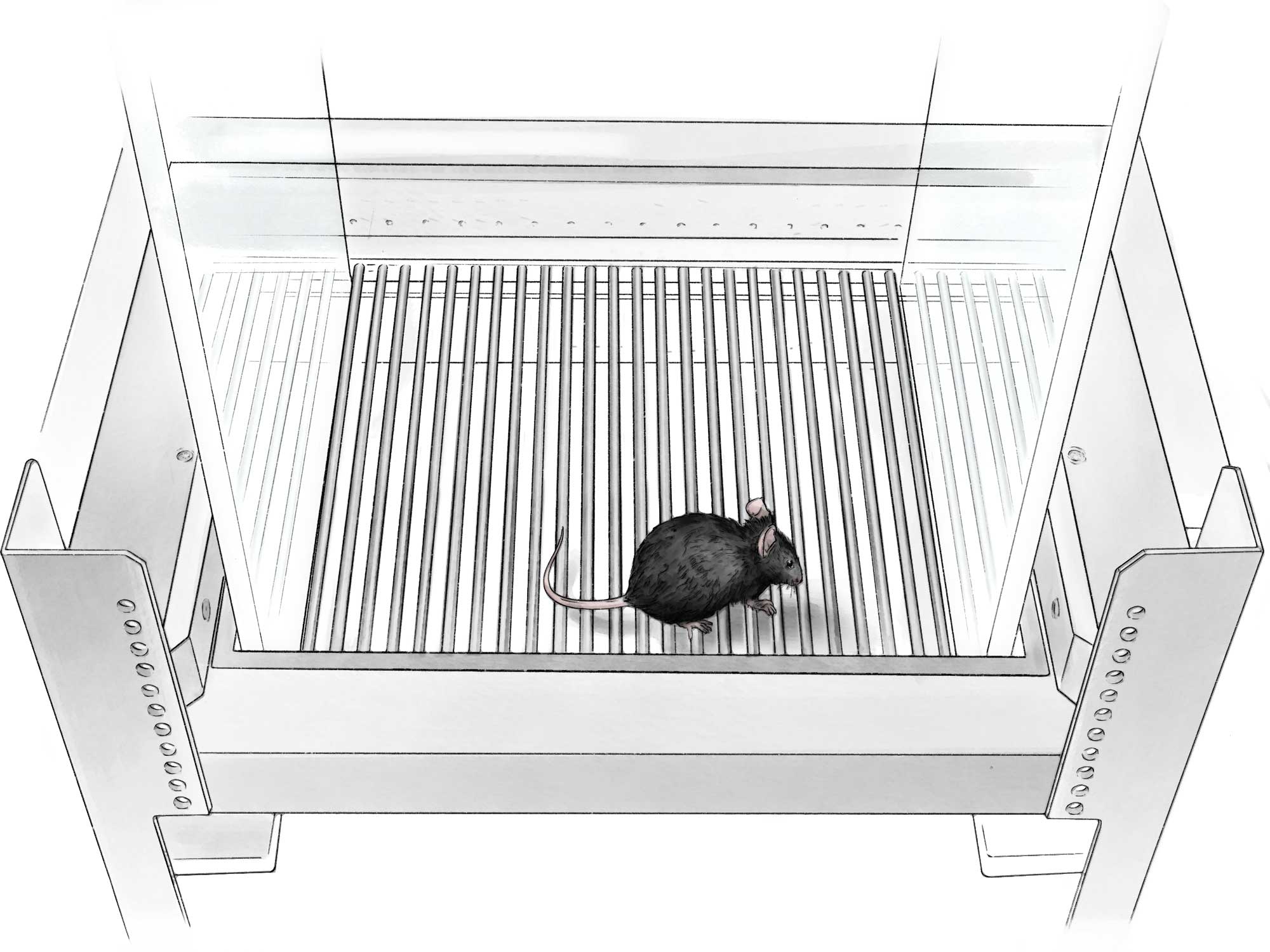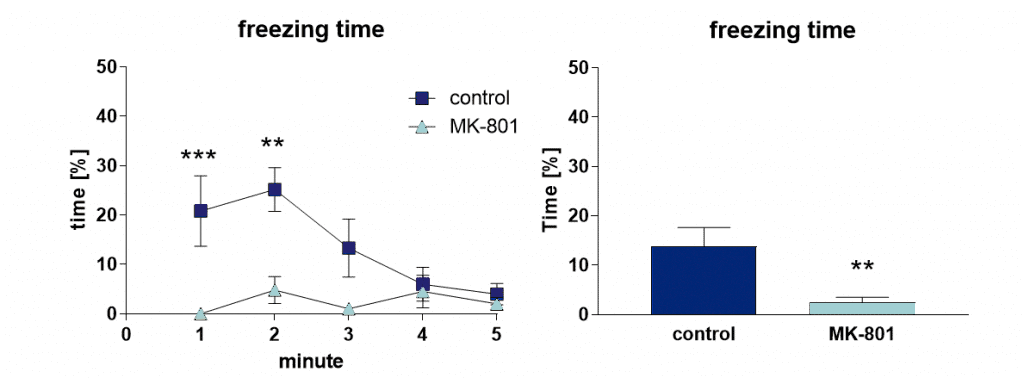
The Contextual Fear Conditioning Test allows the simultaneous assessment of associative learning by simple cues and/or learning by complex stimuli such as context.
Animals are trained and tested on 2 consecutive days. On the training day animals are placed in a chamber and receive a conditioned stimuli / unconditioned stimuli package (tone/foot shock). Contextual memory is tested 24 hours after training. To do so the animal is placed into the same chamber as during the training and freezing behavior is automatically recorded. Cued memory is scored one hour after the contextual test in a novel, modified chamber where the animal receives the auditory cued stimulus and freezing behavior is again automatically recorded.
The time spent freezing during the contextual test and tone-dependent test are defined as index of fear-related learning and memory. Cued and contextual fear conditioning is a task that measures the ability of the animal to learn and remember an association between an aversive experience and environmental cues. All parameters of the test are measured automatically with a tracking system.

Contextual fear conditioning test. Percentage of freezing of MK-801- and sham-treated animals during the contextual phase of the CFC. A: Freezing behavior over a 5 minutes testing period; B: Total freezing time. n = 10 per group. Mean ± SEM, Two-way ANOVA with Bonferroni’s post hoc test (A), unpaired t-test (B); **p<0.01; ***p<0.001.


